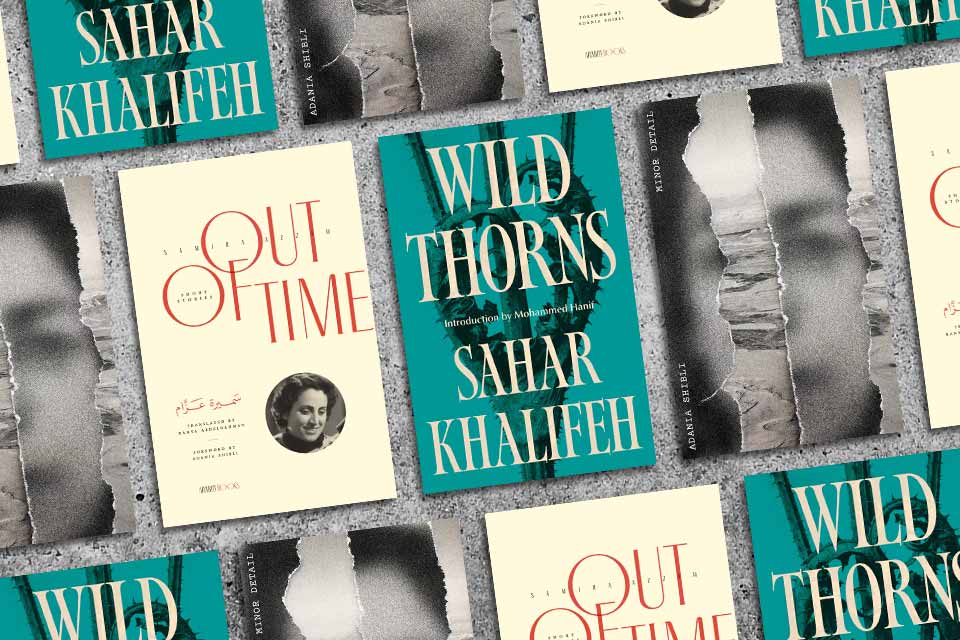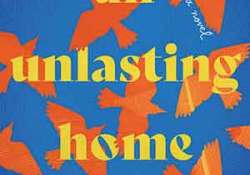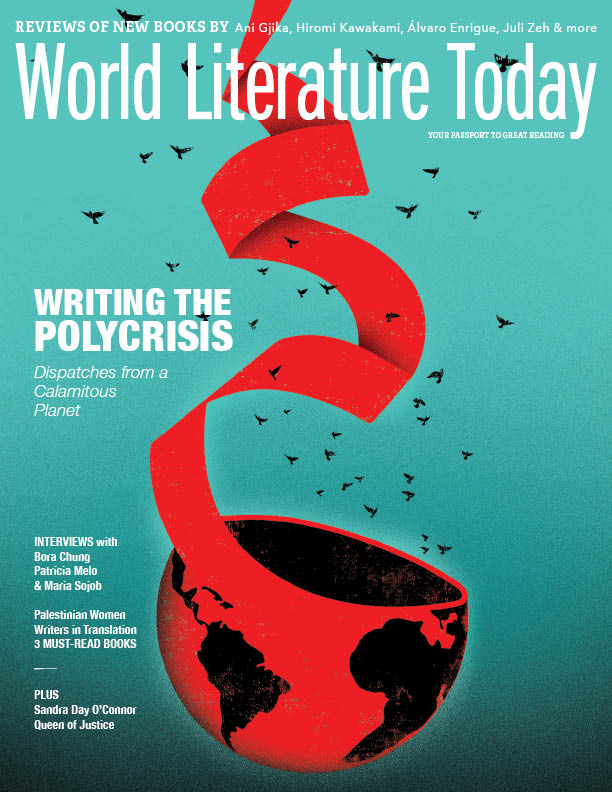Palestinian Women’s Voices in Translation
 No sense can be made of the unspeakable horrors and injustices Palestinians in Gaza and the West Bank have been subjected to over the course of the last few months—to say nothing of the last century. The only voices I have had the stomach to listen to in the midst of the intolerable onslaught have been Palestinian: from media activists on the ground in Gaza to writers, poets, journalists, intellectuals, academics in every discipline, human rights lawyers, and advocates around the globe. Palestinian voices—articulate, varied, insistent—have echoed across decades and geographies. Palestinians have never stopped bearing witness to, recording, and representing their plight and also—crucially—their imaginative visions of a Palestine that once was and is yet to come.
No sense can be made of the unspeakable horrors and injustices Palestinians in Gaza and the West Bank have been subjected to over the course of the last few months—to say nothing of the last century. The only voices I have had the stomach to listen to in the midst of the intolerable onslaught have been Palestinian: from media activists on the ground in Gaza to writers, poets, journalists, intellectuals, academics in every discipline, human rights lawyers, and advocates around the globe. Palestinian voices—articulate, varied, insistent—have echoed across decades and geographies. Palestinians have never stopped bearing witness to, recording, and representing their plight and also—crucially—their imaginative visions of a Palestine that once was and is yet to come.
Fiction, I have always believed, is the genre best suited to provide the space required for the imagination to leap with irreverence, without much thought to consequence. It is a place for courage and intransigence. Fiction invites experiments in language; previously unconsidered thoughts to brew; unanticipated ways of being or becoming to gestate. In times of crisis, when lives are on the line, literature often seems the least useful of forms. But it is precisely through literature that the murdered are made immortal. While this form of immortality can never compensate for the loss of the singular and beloved human being, it can inspire generations, preparing the conditions for a more just future.
This was as true of writer and activist Ghassan Kanafani, assassinated on July 8, 1972, as it is of poet and professor Raafat Alareer, assassinated on December 7, 2023. Kanafani and Alareer’s voices resonate loud and clear, expressing understandable despair even as they formulate inventive ways out. To tell stories—especially when silenced or ignored—and to do whatever work is necessary toward freedom has always been and continues to be the Palestinian way. At the bare minimum, to read these Palestinian experiments toward freedom should be our way, especially now. I recommend the following three Palestinian women writers of fiction, from different periods, in different genres, whose work has been translated into English.
Samira Azzam
Out of Time: Short Stories
Trans. Ranya Abdelrahman
ArabLit, 2022
Samira Azzam (1927–67) was a short-story writer born to a middle-class family in Acre, where she lived before being forced out during the 1948 Nakba. Hers is one of the earliest post-Nakba Palestinian voices in fiction offering images of everyday life in Palestine before and soon after the occupation. As M. Lynx Qualey points out in her introduction to the new translation, while Azzam’s stories may not always deal explicitly with Palestine, they “are about humans facing some sort of injustice.”
Azzam’s universalization of Palestinian struggles aligns with current efforts to link the settler-colonial occupation of Palestine to the history of settler-colonial occupations the world over and the shared damage Indigenous peoples have suffered as a result. While every history is unique, uncovering commonalities allows for powerful alliances toward ethical transformation. Azzam’s vibrant short stories provide snapshots of such potential human connections that continue to resonate today.
Sahar Khalifeh
Wild Thorns
Trans. Trevor LeGassick & Elizabeth Fernea
Saqi Books, 2023
If Azzam’s short stories may seem somewhat removed from political issues, the opposite is true of Sahar Khalifeh’s third and most well-known novel, Wild Thorns (published in Arabic in 1976). Born in Nablus in 1941, Khalifeh is an award-winning novelist whose work has been widely translated.
Wild Thorns deals with the nitty gritty of life in the West Bank under occupation. Twenty-seven-year-old Usama al-Karmi has returned after years of working as a translator in an oil-producing state. He is scandalized to find life under occupation nothing like he remembered or expected it to be. In its realist depiction of daily interactions—exchanges in taxis; interrogations at checkpoints; insults leveled at Palestinians by Israelis; inevitable collusions with the occupiers; prison life; poverty; and pressures on family relations—Wild Thorns conveys the stranglehold the occupation has on Palestinian society.
Khalifeh’s narrative suggests that as poetry, romance, and beauty are snuffed out, as options dwindle and desperation rises, violence begins to seem like the only option to preserve dignity and regain freedom. Nearly half a century after its publication, this novel remains as pertinent as ever.
Adania Shibli
Minor Detail
Trans. Elisabeth Jaquette
New Directions, 2020
Adania Shibli’s masterful 2016 novella, Minor Detail, traces the gang rape and execution of a young Bedouin girl in the Negev desert by Israeli soldiers in 1949, a year after the Nakba. The novella is divided into two parts: the first narrated in the third person by an Israeli journalist, putting himself in the shoes of the officer in charge; the second in the first-person voice of a woman from Ramallah, whose interest is piqued by this particular story of this particular girl because the date of the girl’s murder coincides with the narrator’s date of birth twenty-five years later. The minor detail of the Bedouins’ inconvenient existence on a land falsely claimed by the occupiers to be empty is resolved with bullets.
From 1949 to the present, nothing has changed on that front. Detail by detail, Palestine—from its people, towns, villages, and buildings to its names, ways of life, agriculture, and landscape—is erased. Yet as the woman from Ramallah states, “After a disappearance, that’s when the fly returns to hover over the painting. Little details drift along the length of the road, furtively hinting at a presence.”
In attempting to excavate the murdered Bedouin girl’s story, the narrator preserves her own. Likewise, Palestinian writers, including Shibli, Khalifeh, and Azzam, creatively excavate the persistent traces of a seemingly erased Palestine, preserving a presence that can never be wiped out—to the dismay of those who try.
Editorial note: A review of Shibli’s Minor Detail appeared in the Summer 2020 issue of WLT. The Summer 2021 issue of WLT, “Palestine Voices,” was guest-edited by Yousef Khanfar. And a bilingual English-Spanish version of Raafat Alareer’s “If I Must Die,” translated by D. P. Snyder, appeared on the WLT blog on December 14, 2023.













